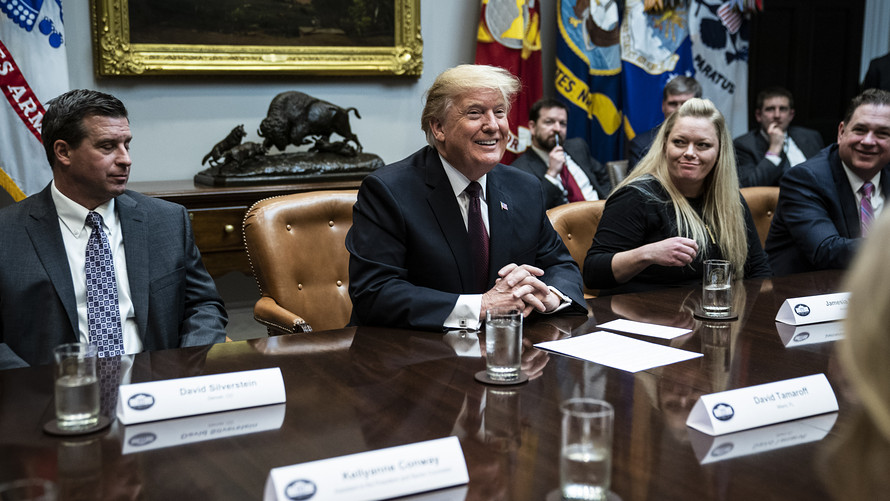
The partial government shutdown has been a cable-news spectacle, but it’s direct effect on the stock market has so far been negligible: The S&P 500 index SPX, +0.82% has risen an impressive 14.5% since the first trading day following the start of the standoff that’s now in its 34th day.
But that may change as soon as next week, analysts and investors said, with the Trump administration itself now warning that the shutdown could bring first quarter growth “very close to zero,” if it continues deep into the first quarter.
“The shutdown hasn’t materially affected stock prices yet,” Ryan Nauman, market strategist with Informa Financial Intelligence, told MarketWatch. “But it has hurt consumer and business sentiment, and if continues another few weeks, it will start to have a measurable impact on the economy, and when investors see that impact, stocks will get hit,” he said.
“Because people are talking about the shutdown, it matters,” argued Michael DePalma, chief executive officer of PhaseCapital, in an interview with MarketWatch. “We see it influencing sentiment, but we’ve not yet seen it show up in the hard data,” like those describing GDP growth or the state of the labor market.
That could change next week, DePalma said, when the Labor Department releases its estimate of job growth and the unemployment rate for the month of January. “If you start to see evidence that the economy is slowing, investors are going to react to it, and they won’t react well,” he said.
Because Congress passed and Trump signed a bill guaranteeing back pay to furloughed federal employees and those working without pay, the Labor Department will still count those workers as employed when surveying employers for the purposes of estimated total job growth, according to a Thursday research note from Capital Economics. That said, “4 million private-sector jobs are estimated to be dependent on federal contracts, so there may be an indirect hit to private payrolls from the shutdown,” the note said.
Meanwhile, a second survey of households, from which the unemployment rate is derived, will count such employees as unemployed, which will likely result in a rise in the unemployment rate, the report said. Such added noise to government statistics, in addition to the delay in the release of other hard data, could contribute additional volatility, DePalma said.
Kevin Hassett, chairman of the White House Council of Economic Advisers, told CNN on Wednesday that first-quarter gross domestic product growth could be near zero if the shutdown doesn’t end soon, but said much of the lost economic activity could be made up in the spring.
But in a Thursday research note, Bank of America Merrill Lynch economist Joseph Song warned that deteriorating consumer sentiment could mean that lost consumption won’t be fully made up.
Song points to a recent consumer survey sponsored by the bank that shows a material worsening of consumer sentiment just as the government shutdown began. “Though the plurality of respondents still feel good about the economy, recent trends show sings of greater concern about the economy,” Song wrote.
The survey showed in this environment of deteriorating consumer confidence, Americans are more likely to use whatever back pay they receive not to consume more, but pay down debt or add to savings.
“The bottom line is that in addition to any lost spending from furloughed workers, a sustained decline in sentiment raises the probability that consumer demand further slows in the near term,” Song argued. Meanwhile, he wrote, “Any lost consumption may not be fully made up once the shutdown ends, as we find the consumer more cautious in their spending habits.”





























